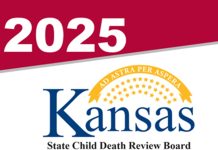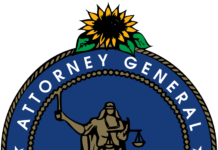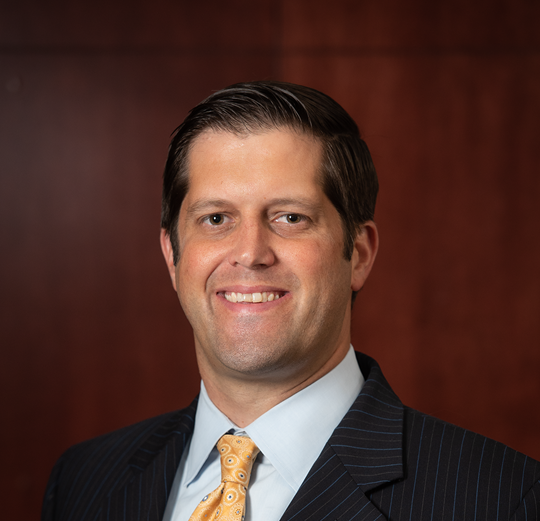The chair of the Kansas Board of Regents on Wednesday tackled the controversy over diversity, equity and inclusion that has flared up in the Legislature and has delayed his confirmation to another term on the panel.
At the start of Wednesday’s board meeting, Jon Rolph directly addressed the issue of DEI and the legislation that would bar state universities and community colleges from requiring statements about DEI as a condition of admission, financial aid or hiring faculty.
Describing himself as a “work in progress” on DEI, Rolph also took a more personal approach, saying he was sometimes bewildered by objections to words like equity and inclusion and explained what they meant to him.
Rolph made his remarks while his reappointment to the board is awaiting action in the Senate. The Senate has held onto his appointment since last summer, and Senate President Ty Masterson has said there were reservations about Rolph’s position on DEI.
During a confirmation hearing, Republican senators quizzed Rolph about DEI but eventually passed out his nomination favorably.
Legislative auditors are already undertaking an audit that examines how much each state university spends on diversity-related departments.
Before reading from prepared remarks, Rolph said his comments were intended primarily for an internal higher education audience.
“It’s important for you to know where your leaders stand on issues that affect your work,” he said.
“I hope to make it clear where I stand on issues that are commonly tied together as DEI – diversity, equity and inclusion.”
Rolph could not be reached for comment early Wednesday night.
Rolph addressed House legislation that, from his perspective, “creates significant confusion and potential conflict where unity and collaboration have been actively pursued.
“We remain open to continual dialog related to both concerns raised in the bill, believing that legislative action must be reserved as the final step and not the first step in any meaningful change,” he said.
Rolph said any budget reductions, particularly related to DEI programs and services for students, will affect the lives of “real people.”
“I hope all involved will engage in deep meaningful conversations,” he said.
Veterans receiving mental health services, first-generation students being supported through their family’s new experiences, and adult learners needing flexible course schedules are example of what’s “vulnerable” during this legislative session, he said.
“Any effort to reduce or cut programs in our higher education system are best informed by the constituents immediately impacted – our students and the taxpayers of Kansas.”
He also voiced opposition to the idea that Kansas universities should follow other states and drop DEI titles on campus to avoid any controversy.
“This concession and its possible implications are concerning,” he said.
“If we need to change to better serve our students and steward the resources of the state, let’s do the hard work of reviewing and revising together,” he said.
“Just as I am asking our colleagues in the Legislature to serve our state and resist the national discourse, I am compelled to also ask our institutions to do the same hard work,” he said.
“Build programs and hire people that will advance the well-being of all Kansans,” he said.
“Go back to your campus, visit with key stakeholders around the table and make decisions that best serve our students.”
Rolph also addressed DEI on a more personal level.
“When I am asked about my position on diversity, equity and inclusion, I am always curious as to what the person posing the question understands about the meaning of these terms individually and whether their understanding is informed by their own examination of issues and personal experience or whether it is just an abstraction of things that they have heard said about DEI,” he said.
He said he didn’t understand opposition to the word “equity.”
Rolph said he defined equity as meaning “fairness of opportunity to participate,” although he added there appeared to be “considerable controversy” over the topic in the statehouse.
“I have trouble understanding the objection. I can only assume that there are those who hold to the belief that if you do anything at all to advantage one group, you are taking something away from another,” he said.
“This is not, in my opinion, a zero-sum game,” he said.
“We can, however, clearly see the obstacles faced by some of our students that result in underrepresentation of certain groups, and often, the failure to continue to completion.”
Rolph said he hopes that the state’s higher education system is creating programs that would help every student succeed.
He also questioned the consternation about the word “inclusion.”
Rolph said inclusion is about creating an environment where all faculty, students and staff feel like they belong.
“The challenge we are faced with in Kansas is recognizing that our campuses include adult learners, veterans, first-generation Americans and people attending school at night to further their education to make themselves more valuable in the workforce.”
He said all ethnicities and ages are represented on state university campuses.
“We’re trying to meet the needs of our people, not as groups, but as individuals,” he said.
“It takes effort and attention to cultivate a learning environment that supports inclusion and belonging,” he said.
“It is our aspiration to enhance all students’ chances of success, academically, economically and harness all the positive implications that it has for our state and our nation.”
.













